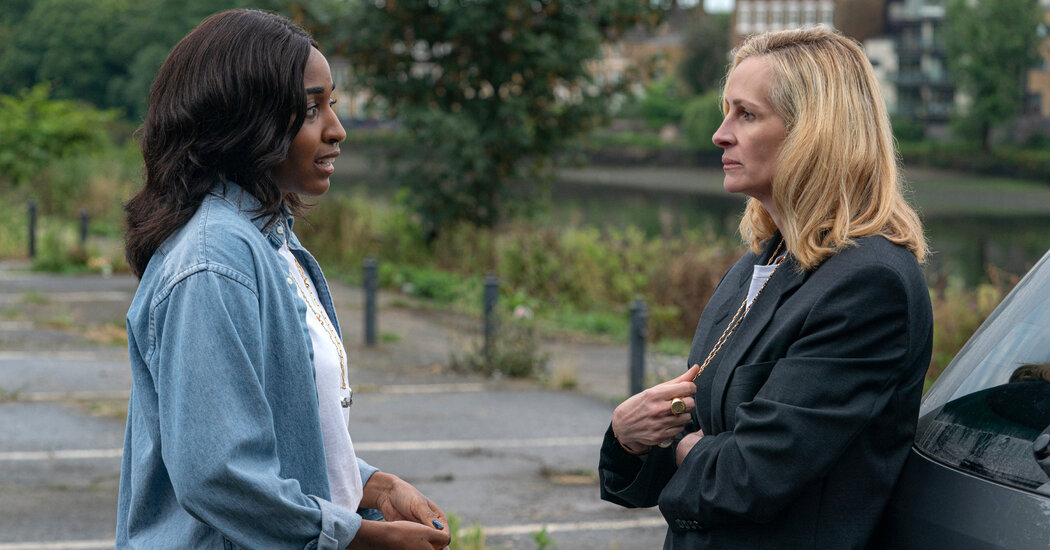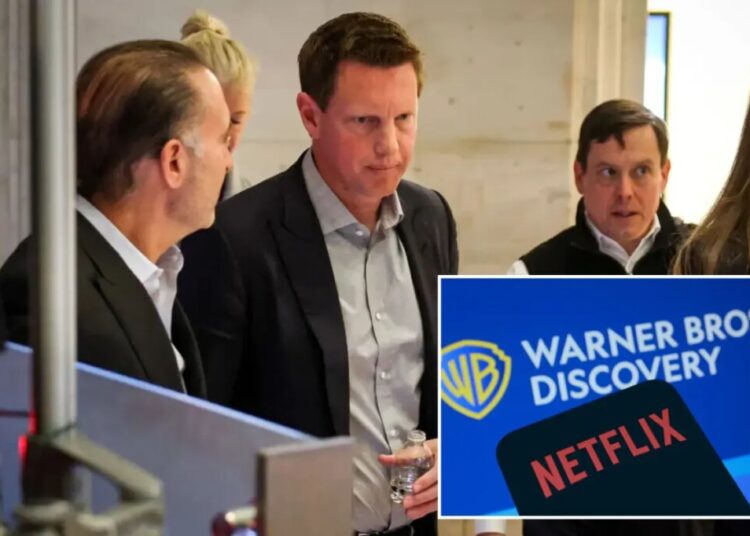
This article contains spoilers.
At one point in Ari Aster’s anxiety-inducing, Covid-era western, “Eddington,” a white teenager named Brian stands at a gazebo during a memorial saying, “I’m just another privileged white kid and my job is to sit down and listen — which is what I plan to do after making this speech which I have no right to make.” But even as the teen declares that his role is to “sit down and listen,” his voice grows louder, his tone more aggressive. The irony, like many of the ironies in Aster’s film, is comical until it becomes threatening.
“Eddington” shares a common concern with Paul Thomas Anderson’s “One Battle After Another” and Luca Guadagnino’s “After the Hunt”: how a younger generation behaves during the current political moment. These films were bigger in the discourse than at the box office, but with each of them helmed by a well-respected auteur director, they offer a collective view of how the Gen Z story is told on the big screen. The films take different approaches, but all reflect a general wariness toward Gen Z: kids who have grown up in an age of social media, using the rhetoric of protests and revolution. They perform their woke politics, often disconnected from the ideologies they so desperately want to espouse.
“Eddington” follows the small-town New Mexico sheriff Joe Cross (played by Joaquin Phoenix) in May 2020 as his disdain for Covid mask mandates and personal beef with the incumbent mayor, Ted Garcia (Pedro Pascal), spiral out into a bizarre sequence of escalating events that start with his decision to run against Ted for mayor and end with a bloody shootout in the street.
Though Aster focuses our attention on Joe, the film also captures the consistent background noise filtering in around him: news from the media, online conspiracy theories, social media feeds. And perhaps most affected by all this noise is the youth of his community. A smattering of teenagers take to the streets of Eddington to protest police brutality, to Joe’s consternation. But the sight of the mostly white protesters’ signs and bent knees are juxtaposed with the empty, dusty streets of their town, showing how much of this mobilization is more about optics and popularity than enacting real change.
Aster’s film shows that even at their most clueless and disingenuous these young people are still products of an age of social media and misinformation. They’re also capable of manipulating the larger narrative to center themselves, to their benefit. One of the secondary arcs in the film revolves around Brian, whose sudden interest in political action is driven by his crush on a young political evangelist named Sarah. His adoption of Sarah’s rhetoric about whiteness and injustice is a contradictory mix of self-centered performance and dutiful self-effacing dismissal.
The post Today’s Top Directors Have Some Issues With Gen Z appeared first on New York Times.



